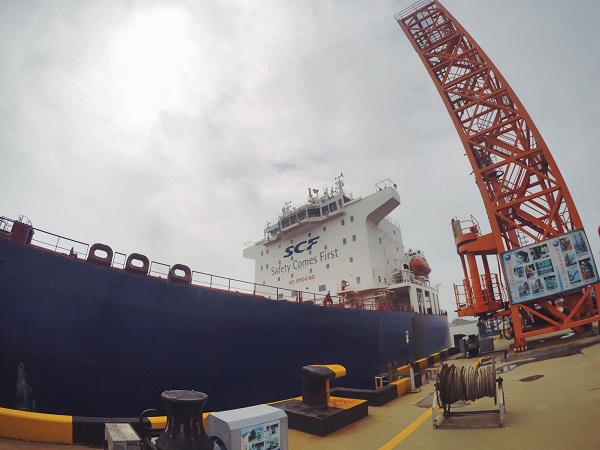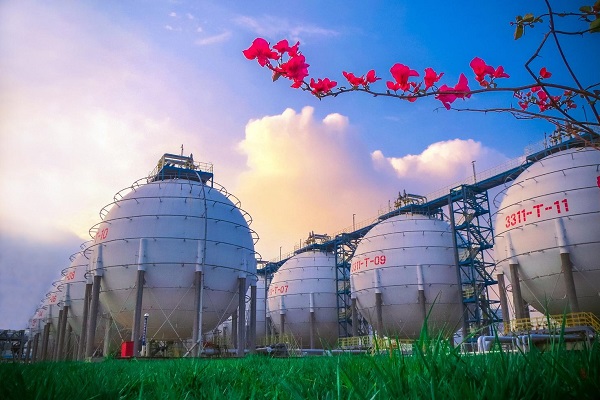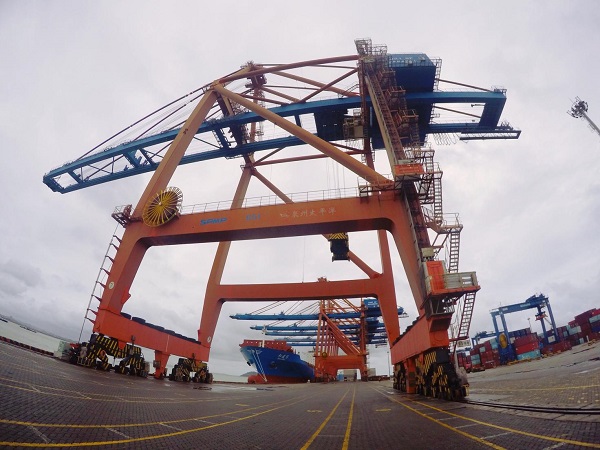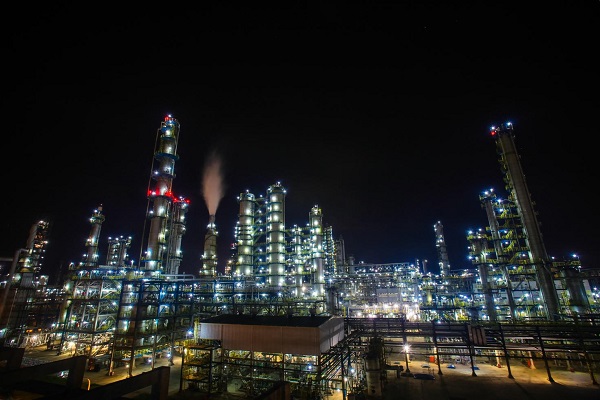[SOEs in the B&R projects] Sinochem Quanzhou Petrochemical develops new path to sustainable growth
Quanzhou in South China’s Fujian province, the starting point of the Maritime Silk Road in ancient China, is now a pilot area of the 21st Century Maritime Silk Road.
It is home to a large refinery, Sinochem Quanzhou Petrochemical Co, a subsidiary of the state-owned chemical maker Sinochem Group.
The refinery was the first large-scale petrochemical project independently built by Sinochem. With an annual output of 12 million tons of refined oil, it has become a domestic stands-out and a world-class petrochemical enterprise through improving its production, operation and management.

A 50,000-ton diesel-engine ship fully loaded with refined oil ready to depart to Belt and Road countries. [Photo by Ma Yuqian/News Center of SASAC]
About 90 percent of its crude oil is imported from the countries and regions taking part in the Belt and Road Initiative. By July 2018, Sinochem Quanzhou Petrochemical had imported more than 45 million tons of crude oil, contributing a lot to the economy of Fujian province.
Meanwhile, the company has established good cooperation and economic relations with enterprises of countries involved in the Belt and Road Initiative, such as Saudi Aramco and Kuwait National Petroleum Company.
About 90 percent of its refined oil is exported to countries involved in the Belt and Road Initiative like Malaysia, Singapore and Thailand. Sinochem Quanzhou Petrochemical also sells its products to Europe and Australia, which have the most strict emission standards.

A storage tank area at Sinochem Quanzhou Petrochemical [Photo/Sinochem Quanzhou Petrochemical Co]
“The refined oil export not only leads us to globalization and makes Chinese high-quality products and the Sinochem brand known and recognized in the global market,” said General Manager of Sinochem Quanzhou Petrochemical Zhang Qiang, “but also significantly improves the company’s economic benefits.”
In order to prevent environmental damage, the company deployed anti-seepage treatment with above-ground piping, so that harmful leakage could be detected and the sewage could be recycled internally.

Staff workers of the company release krill into the sea. About 100 million krill and shrimps are released every year. [Photo by Ma Yuqian/News Center of SASAC]
Thanks to wet scrubbing desulfurization and ozone oxidation denitration technology, over 99.8 percent of sulfur can be recovered.
The company takes steps to restore and maintain the marine ecology.
As a large-scale oil refinery, Sinochem Quanzhou Petrochemical effectively shoulders the responsibility of ecological civilization construction and spares no effort to build a clean production plant and improve its ecological and environmental protection capabilities.

Quanzhou port [Photo by Ma Yuqian/News Center of SASAC]
On March 28, 2018, Sinochem led financial institutions and governmental departments in a blockchain-based crude oil import trading pilot project, which relys on the Sinochem Energy High-Tech Co’s oil trading platform Petrolic, to improve the safety and efficiency of trading and cut financing costs by over 30 percent.
The platform Petrolic has simplified and optimized traditional trading procedures.
More than 80 percent of the oil products traded on Petrolic are exported to and imported from countries involved in the Belt and Road Initiative, providing more convenient and efficient service to those countries’ industrial chains and helping expand the global presence of Sinochem.

Night view of Sinochem Quanzhou Petrochemical Co [Photo/Sinochem Quanzhou Petrochemical Co]
(Executive editor: Li Shuling)



